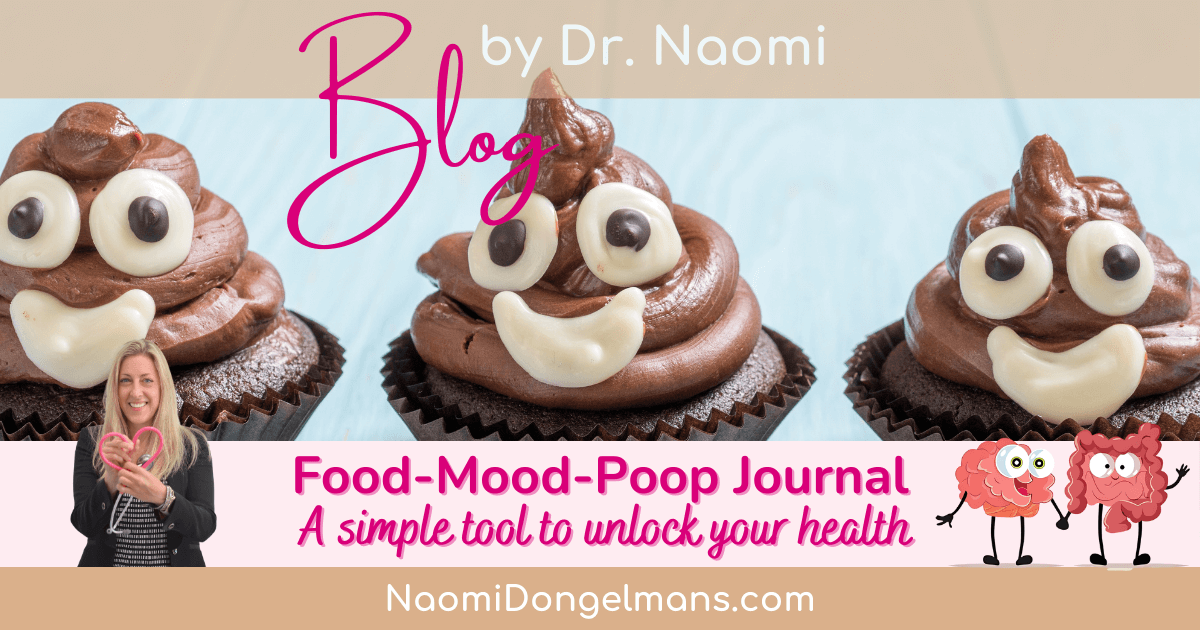
Welcome to a healthier gut journey! One of the most valuable yet straightforward tools for understanding and improving gut health is the "food-mood-poop" (FMP) journal. You'll uncover patterns and triggers that impact your digestion and overall well-being by tracking what you eat, how you feel, and your bowel movements. Let’s explore how to create your FMP journal and why it's such a potent tool for a healthier gut.
Why Keep an FMP Journal?
- Identifying triggers: Discover the foods that may cause bloating, discomfort, or mood swings, allowing you to make informed dietary choices.
- Connecting the dots: See how your emotions and stress levels influence your digestion, making it easier to manage lifestyle factors affecting your gut.
- Tracking progress: Record changes over time to celebrate your successes and adjust your approach as needed.
 How to Set Up Your Journal
How to Set Up Your Journal
- Choose your format: Whether it's a notebook, spreadsheet, or digital app, choose a format that suits your style.
- Create columns or sections: Your journal should include the following:
- Food: Record each meal, snack, and drink you consume. Be as detailed as possible.
- Mood: Note your emotional state before and after eating. Consider stress, anxiety, happiness, or energy levels.
- Poop: Track bowel movements, noting their frequency, consistency (using the Bristol Stool Chart as a guide), and any associated symptoms like urgency or discomfort.
Tips for Effective Journaling
- Be consistent: Try to make entries shortly after each meal or daily at a regular time to maintain accuracy.
- Add context: Note any significant life events, exercise routines, sleep quality, or medications that could influence your digestion or mood.
- Reflect regularly: Review your entries weekly or biweekly to identify patterns and triggers. Are certain foods consistently causing bloating or discomfort? Is stress affecting your digestion?
Next Steps
- Make adjustments: If you notice clear triggers, consider eliminating or reducing them in your diet while working on stress management strategies.
- Consult a professional: Share your findings with a healthcare provider for more tailored advice. An expert can help interpret patterns and guide you in making sustainable changes.
- Celebrate wins: Small improvements matter. Celebrate changes like reduced bloating, better energy, or more regular bowel movements!
Conclusion
The food-mood-poop journal is a practical, empowering tool to understand your unique gut health needs. By documenting and reflecting on your diet, emotions, and bowel movements, you'll have a clear path toward improved digestion and overall wellness. Start today, and take one step closer to a healthier gut!
Curious about what your poop is really telling you?
Your stool is a window into your gut health, revealing critical insights about your digestion, diet, and overall well-being. If you want to learn how to interpret these signals, join my course, "What Your Poop is Telling You."
In this course, you'll discover:
- How to identify different types of stools and what they mean for your health.
- The connection between your diet, gut microbiome, and bowel movements.
- Practical steps to improve your digestion and gut health based on your stool analysis.
Ready to unlock the secrets of your gut?
Sign up for the course today and start taking control of your health from the inside out!
🚨🚨Grab your discount! Use code HAPPYPOOP and pay only €10
Love what you read here? Subscribe for updates! Add me to the list!




























0 Comments